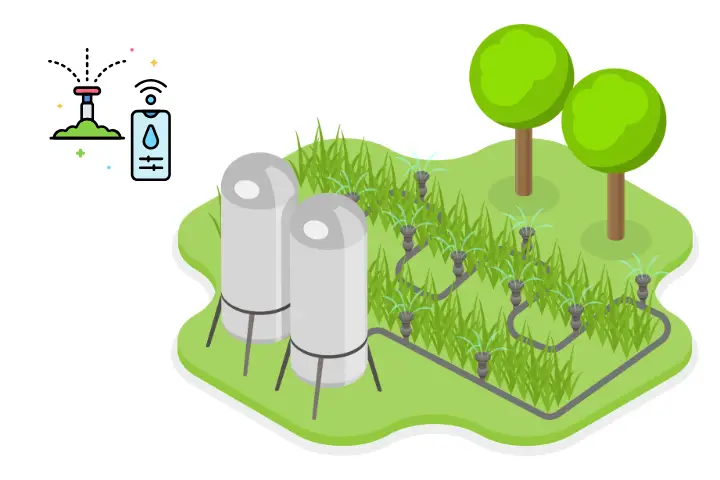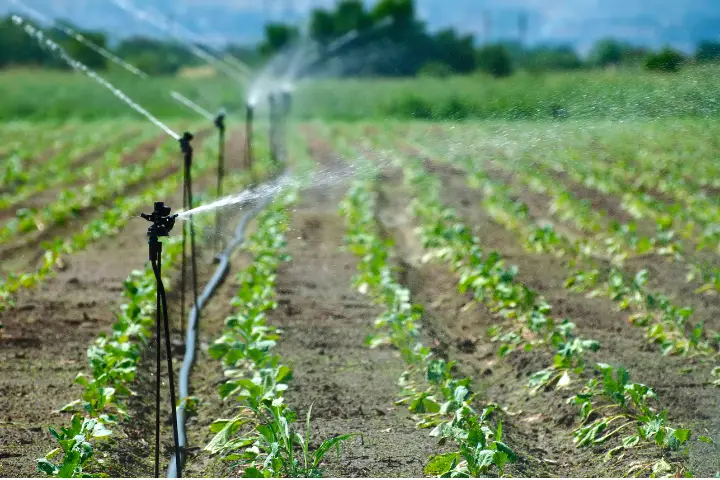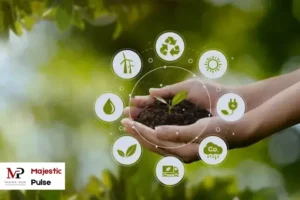Smart irrigation systems are transforming the way homeowners manage their gardens and landscapes, offering advanced technology that optimizes water usage while ensuring plants receive the hydration they need. As water scarcity becomes an increasingly pressing issue, these innovative systems provide an efficient solution that balances plant health with environmental sustainability. With these systems, you can create a flourishing garden while conserving precious water resources.
What Are Smart Irrigation Systems?
Smart irrigation systems are automated watering solutions that utilize advanced technology to monitor and manage the irrigation needs of your landscape. These systems typically include components such as weather sensors, soil moisture sensors, and smartphone connectivity, allowing homeowners to efficiently water their gardens and lawns based on real-time data. Leading brands like Rachio, Orbit, and RainMachine offer a range of smart irrigation solutions that cater to various garden sizes and types.
Key Features of Smart Irrigation Systems

1. Weather-Based Irrigation
Smart irrigation systems use local weather data to adjust watering schedules. By incorporating real-time weather forecasts, these systems can prevent overwatering during rain events or adjust irrigation levels based on temperature and humidity conditions.
2. Soil Moisture Sensors
Many smart irrigation systems come equipped with soil moisture sensors that monitor the moisture levels in the ground. This feature allows the system to determine when plants need watering, ensuring that water is applied only when necessary.
3. Remote Access and Control
With smartphone apps, homeowners can monitor and control their irrigation systems from anywhere. Whether you’re at home, at work, or on vacation, you can easily adjust watering schedules, check moisture levels, and receive alerts about system performance.
4. Customizable Watering Schedules
Smart irrigation systems allow for customizable watering schedules based on the specific needs of different plants in your garden. Homeowners can set tailored watering times and durations for various zones, optimizing water usage and promoting healthy growth.
5. Integration with Smart Home Devices
Many smart irrigation systems can integrate with other smart home devices, such as weather stations, smart home assistants, and home automation platforms. This integration enables coordinated responses to environmental changes and enhances overall garden management.
6. Data Analytics and Reporting
Advanced smart irrigation systems provide data analytics and reporting features that track water usage and plant health over time. Homeowners can access this information to make informed decisions about their garden care and water management.
7. Leak Detection
Some smart irrigation systems include leak detection capabilities that alert homeowners to potential issues in their irrigation lines. Early detection of leaks can help prevent water waste and costly repairs.
8. Efficient Drip Irrigation Options
Many smart irrigation systems support drip irrigation, a highly efficient method that delivers water directly to the plant’s root zone. This approach minimizes evaporation and runoff, ensuring that water reaches where it’s needed most.
9. Rain Delay and Suspension Features
Smart irrigation systems often come with rain delay features that automatically suspend watering during periods of rainfall. This feature helps conserve water and prevents overwatering, ensuring your garden stays healthy and hydrated.
Benefits of Smart Irrigation Systems

1. Water Conservation
The most significant benefit of these systems is their ability to conserve water. By using weather data and soil moisture levels to optimize watering schedules, these systems can significantly reduce water waste and promote sustainable gardening practices.
2. Cost Savings
Reducing water usage leads to lower utility bills, making smart irrigation systems a cost-effective solution for homeowners. By optimizing irrigation practices, you can save money while maintaining a healthy and vibrant garden.
3. Improved Plant Health
These ensure that plants receive the right amount of water at the right times, promoting optimal growth and health. By preventing overwatering or underwatering, these systems help maintain healthy soil conditions and plant vitality.
4. Convenience and Automation
With automated watering schedules and remote access, smart irrigation systems simplify garden maintenance. Homeowners can manage their irrigation systems with ease, eliminating the need for manual watering and reducing the time spent on garden care.
5. Environmental Sustainability
By conserving water and reducing runoff, these systems contribute to environmental sustainability. These systems promote responsible water usage, helping to protect local water resources and reduce the overall environmental impact of gardening.
6. Customizable Solutions
They allow for customizable solutions based on the specific needs of your garden. Homeowners can create tailored watering schedules for different plant types, ensuring that each area receives the appropriate care.
7. Increased Property Value
A well-maintained garden enhances your home’s curb appeal and overall property value. Investing in a smart irrigation system can contribute to the aesthetic appeal of your landscape, making it more attractive to potential buyers.
8. Educational Insights
Many smart irrigation systems provide educational insights about water usage, plant care, and environmental conditions. Homeowners can learn about best practices for gardening and water management, fostering a greater understanding of sustainable gardening techniques.
9. Community Awareness
As more homeowners adopt smart irrigation systems, communities benefit from collective water conservation efforts. This trend promotes awareness of water usage and encourages responsible gardening practices among neighbors.
How Smart Irrigation Systems Improve Life at Home
These systems significantly enhance the quality of life for homeowners by providing a reliable and efficient way to care for their gardens. The automation and optimization offered by these systems reduce the burden of manual watering, allowing homeowners to enjoy their outdoor spaces without the hassle of constant maintenance.
Additionally, the water conservation and cost-saving benefits of these systems foster a sense of responsibility toward environmental stewardship. Homeowners can feel good about their gardening practices, knowing that they are contributing to water conservation efforts.
The integration of these systems with other smart home devices further enhances convenience. Homeowners can create a cohesive smart home ecosystem that promotes efficient energy and resource usage throughout their property.
For families, smart irrigation systems provide an opportunity to engage children in gardening and environmental education. By involving the family in garden care and discussing the importance of water conservation, parents can instill a sense of responsibility and appreciation for nature in their children.
Moreover, the ability to customize watering schedules based on specific plant needs allows homeowners to cultivate diverse gardens without the worry of over- or underwatering. This flexibility encourages creativity in garden design, leading to vibrant and healthy outdoor spaces.
To Sum Up.
Smart irrigation systems represent a significant advancement in garden care and water management. With features like weather-based irrigation, soil moisture sensors, and remote access, these systems optimize water usage while promoting healthy plant growth. Investing in a smart irrigation system not only conserves water and reduces utility costs but also enhances the beauty and vitality of your garden. As gardening practices continue to evolve, they will play a crucial role in creating sustainable and thriving outdoor environments, ensuring that homeowners can enjoy their gardens for years to come.



















